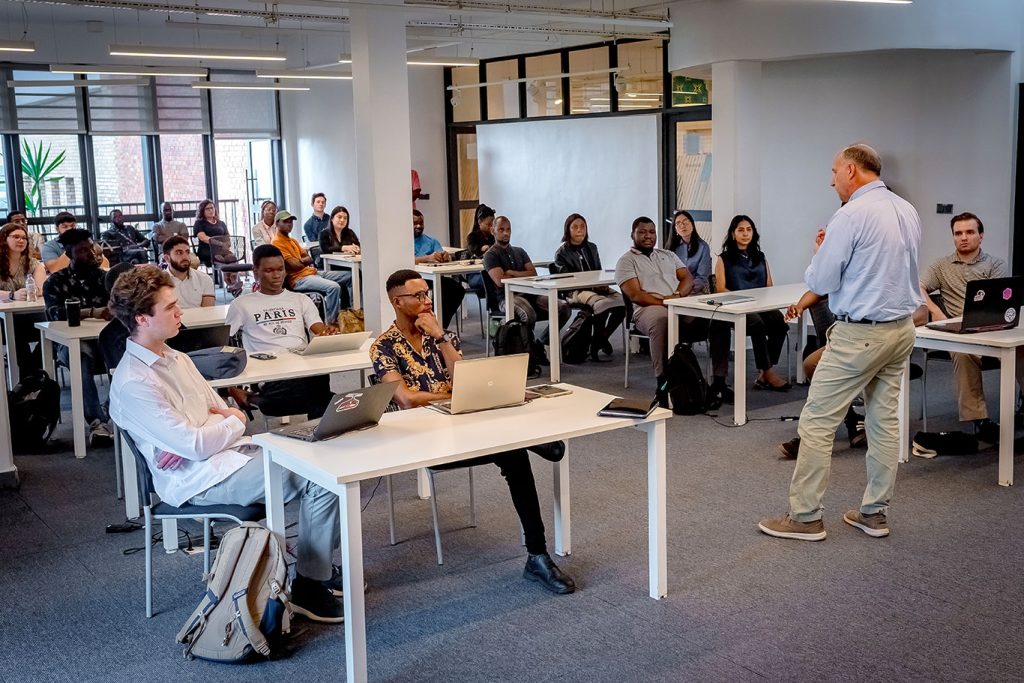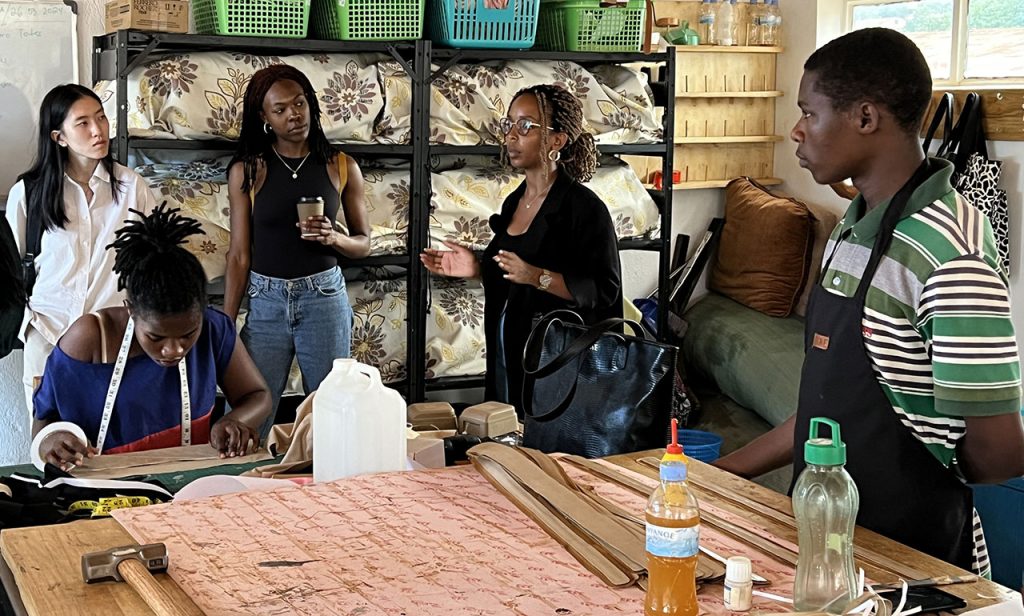This spring, a dozen Gabelli School students learned what it takes to sustain a small business in a country where entrepreneurship is tied to recovery from genocide and civil war.
“Rwanda is a vivid example of the power of entrepreneurship and how it can change not just individuals’ lives, but can actually have a deeply profound impact on the whole country,” said Dennis Hanno, Ph.D., an associate clinical professor who created the course Entrepreneurship and Innovation in Rwanda at Fordham.
Hanno, the founder and CEO of IDEA4Africa and a former president of Wheaton College, has visited the central African country with students on similar trips more than 20 times. He said entrepreneurship has been a healing force for the country in the 30 years since the 1994 genocide that killed nearly one million Rwandans.
The class paired teams of two students with six businesses in and around Kigali, Rwanda. The students were given background information before they departed for the nine-day April trip, but it was the in-person meetings where they learned whether the business owners needed help with financing, marketing, or expansion.

As part of the trip, students attended presentations on entrepreneurship at the African Leadership University in Kigali. Photo by Promesse Kwizera
Kyla Hill, a Gabelli School student pursuing an M.S. in management, and Jaden Chocho Anaya, a junior majoring in business administration, were paired with Gloria Girabawe, the founder of Flove, a social enterprise that hires single mothers to manufacture sustainable fashion accessories such as tote bags, laptop sleeves, and wallets.
Hill said working with Girabawe to expand her company’s presence in New York City and locate a local source for vegan leather was the highlight.
“I had a little bit of imposter syndrome because as a student, I’m thinking, ‘What could I possibly bring to the table for her when she already has a business that is pretty successful?’” said Hill, who graduated from Fordham College at Rose Hill last year with a degree in economics.
“I found myself asking Gloria, ‘Do you feel like you’re getting value out of this?’ And she very adamantly would say, ‘Yes!’ The encouragement that I got from her made me feel like I was helping to make a difference.”
For Anaya, the trip was her first out of the country, and just being exposed to a different culture was deeply moving.
“It really made me think differently about just the way we live in the U.S. and how people decide to take on entrepreneurship here based on the freedom to be able to experiment and innovate. In Rwanda, entrepreneurship and innovation are seen as more of a necessity,” she said.
Anaya was also moved by Girabawe’s support of women who are abandoned by their families when they become pregnant, a growing problem in the country.
Girabawe said the fresh perspective the students brought with them was invaluable. Flove has been in business for three years and boasts 14 employees who manufacture 15 collections, so she feels she’s ready to expand to overseas markets like New York City.
“If I’m going to expand, then I have to really understand the user. I can’t use the same insights of a person in Rwanda and think that it’s going to be the same as the person who’s in New York,” she said.
“They learned a thing or two from us, and we learned from them as well.”


